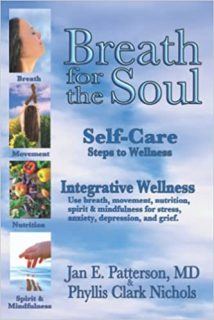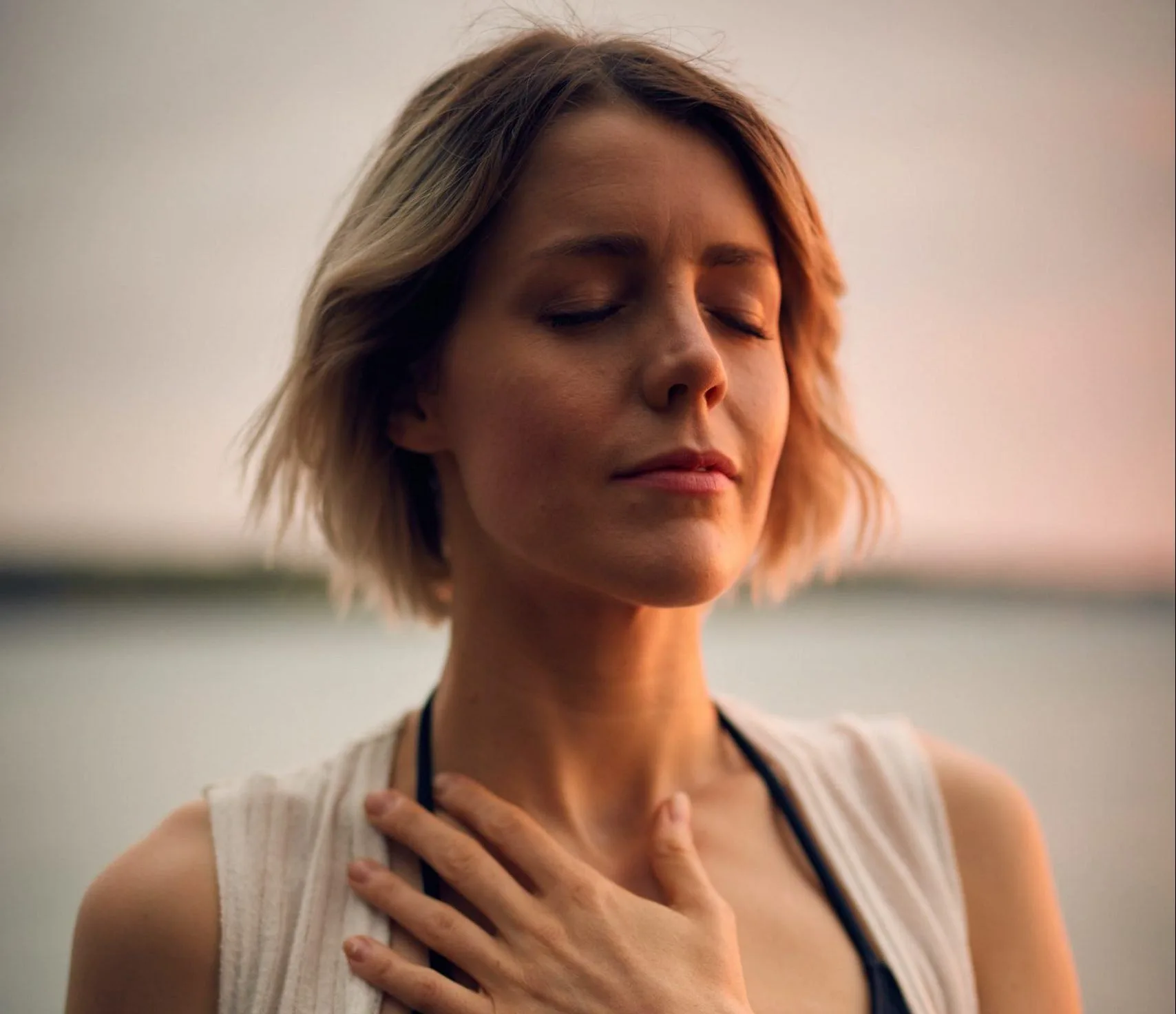Dr. Jan Patterson, M.D., is a US based infectious disease physician, professor of medicine and qualified integrative medical practitioner among other important qualifications. She is also a cancer survivor, wife and mother. Recently she spoke to Longevity about her new book Breath for the Soul – Self-Care Steps to Wellness. She teamed up with Phyllis Clark Nichols to publish an important guide for anyone interested in improving their health and longevity.
Breath for the Soul is about self-care steps to wellness
As the author of “Breath for the Soul”, Dr Jan Patterson shares her experience over the last thirty years professionally and personally.
“Breath for the Soul” aims to blend integrative medicine with spirituality, with Dr. Patterson providing practical methods on how you can improve your mental and physical well-being using approaches involving self-care. By facing grief, she learned that “while conventional medicine can do many great things, it is challenging to treat stress, anxiety, depression, and grief with this approach alone.“
Practical advice
The book provides tools for facing these difficulties in life using integrative modalities. The authors have received rave reviews like this one from other medical professionals and readers alike:
“Combining modern science and ancient wisdom, Breath for the Soul offers evidence-based approaches to practicing self-care. Whether you need to heal or to stay well, this book offers reminders, and practical advice, encouraging inspiring thoughts that speak to your physical and spiritual nature. In Breath for the Soul, Patterson and Nichols offer ways that provide structure, flexibility, and inspiration for you as you practice self-care that becomes a lifestyle, not a checklist of things to do.” – Harold G. Koenig, M.D. Professor of Psychiatry & Behavioral Sciences Duke University Medical Center
Integration, not Replacement
Breath for the Soul offers a step-by-step approach and self-care plans integrating:
-
Breath
-
Movement
-
Nutrition
-
Spirit
Empowering you with a path towards healing and wellness through stress, anxiety, depression, and grief. The book includes a practical toolkit on:
-
A Personal Plan
-
Resources
Dr. Patterson explains that “none of these self-care measures… are intended to take the place of medication that your doctor prescribes. They are intended to be integrated with traditional medicine.” She tells us, “there are some things we can do naturally”.
The four pillars of her integrative approach show this, being breath, movement, nutrition, and spirit.
Self-care learned through her own experiences
Dr Patterson is a physician and professor of medicine/infectious diseases and trained in infectious diseases, integrative medicine, and internal medicine. In addition, she is also an educator who teaches practicing professionals as well as medical trainees, speaking in venues throughout the country and the world. She also describes herself as a believer, wife, mom, gardener, foodie, oily lady traveler, blogger and writer.
With many years of experience in health care infection prevention as well as quality improvement and patient safety, she continues to be active in clinical research and author of more than 100 scientific articles and reviews.
She completed her fellowship in integrative medicine at the Andrew Weil Center for Integrative Medicine at the University of Arizona. These studies ignited an interest in mind-body medicine, complementary and alternative practices, botanicals, dietary supplements, and nutritional health.

Breath for the Soul
Easy ways to practice self-care
These are some of the key highlights from our discussion.
Essential Oils
“My journey into complementary therapies began when I was introduced to essential oils by my massage therapist,” she says. She is now a registered Aromatherapist, as she wanted to “understand more about how essential oils worked”, especially since she has a scientific background. She found that her own self-care regime benefits from using them for her mood and emotions, and this is something that science supports.
The smell is a chemical reaction, and with the molecules from essential oils being detected by our olfactory nerve (the smell nerve), they reach our brains, causing the release of serotonin and dopamine. These are two neurotransmitters responsible for calm and pleasure-related emotions.
Essential oils are a consistent part of her everyday life and self-care. She uses Peppermint in the morning for her breathing and Lavender at night for sleeping. In fact, she swears by her own special blend of oils, which consists of Lavender, Cedarwood, and Orange.
Are we what we eat?
What we put into our body is just as important as what we expose it to. Dr. Patterson talks to us about how the Standard American Diet (SAD), which is high in inflammatory foods, processed foods, and sugar, is failing us and gives us practical solutions for fixing it.
“Eating a healthy, diverse diet… is not only good for our body, but also for our brains and mood,” she says, and science backs this up. It has been shown that ginger increases serotonin levels (a calming neurotransmitter), walnuts have been shown to improve mood, and turmeric has a neuro-protective effect on the brain.
Eating healthy doesn’t equate to deprivation. She aims to “provide alternatives to combat deprivation.” With the recipes included in her book, she shows that incorporating healthy foods into our lifestyle is possible. She even shares her favorite recipes with us, mentioning Chia Pudding and Almond toast with blueberries as her go-to’s.
Movement
She describes movement as “a powerful tool,” explaining how moderate to vigorous exercise can be beneficial for our mental and physical health. Listing yoga, Tai Chi, and brisk walking as possible activities, Dr. Patterson says the most important thing is finding what works for you and what you enjoy, citing how movement can also be used in conjunction with spirituality through meditation.
Spirituality and self-care
She describes spirituality as a personal connection to a higher power. This can lead to one having a more activated brain “that offers more resilience and combats (anxiety and) depression.” Spiritual fitness can be strengthened by seeking mindfulness through prayer, meditation, and the next pillar of self-care: breathwork.
Breathwork
Breathing may be an involuntary bodily action. However, if we do it intentionally, it can yield positive results for our physical and emotional well-being.
An example she gives is pranayama, a breath-regulation practice typically used in yoga, which activates the parasympathetic (relaxation) response. It has been shown to decrease stress, thus lowering anxiety, and increasing mindfulness
Empowerment and Educating to enhance self-care
Dr. Patterson wrote this book with the purpose to encourage everyone to focus on self-care. It’ helps to educate the reader how to use these modalities of breathing, movement, nutrition, and acknowledging our spiritual nature to alleviate thoughts of anxiety and depression, and aid the grieving process.
This is a must-have book and a perfect gift. Get your copy now from Amazon now.
Watch the interview
Learn more about Dr. Jan Patterson and the personal experiences shared in her book. Watch the Instagram Live video below. You can also read more about the book and wellness on https://www.drjanpatterson.com/
View this post on Instagram



![women [longevity live]](https://longevitylive.com/wp-content/uploads/2020/01/photo-of-women-walking-down-the-street-1116984-100x100.jpg)










